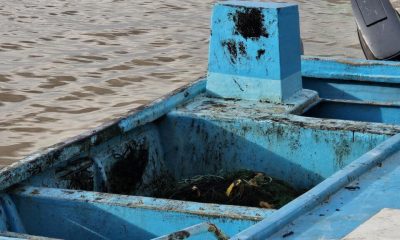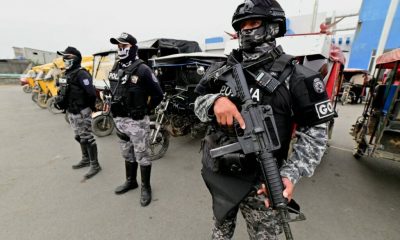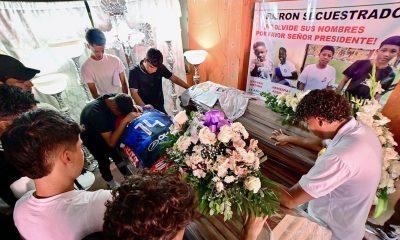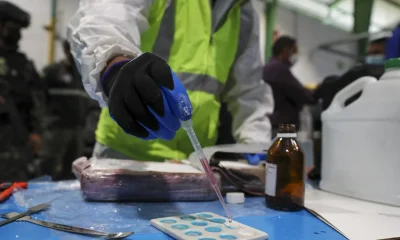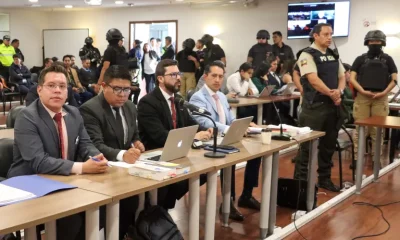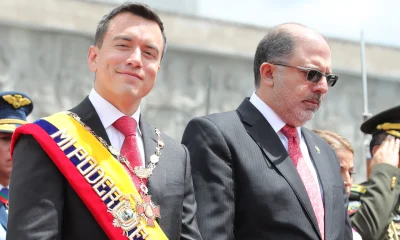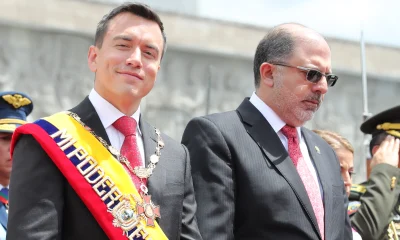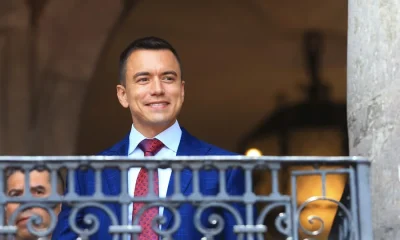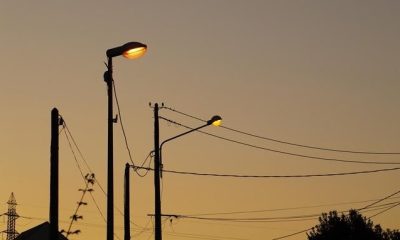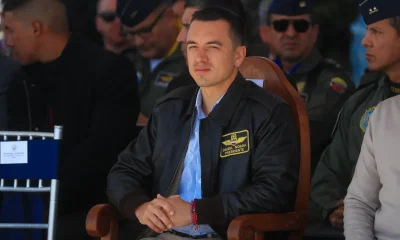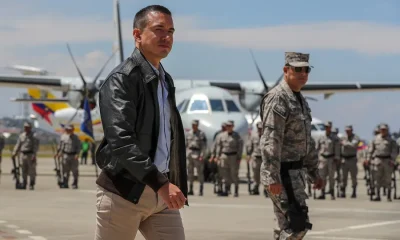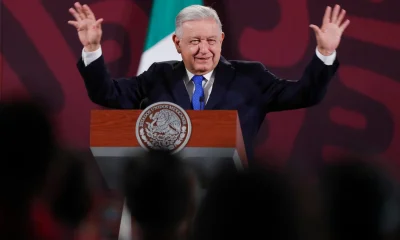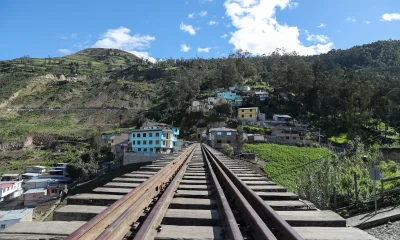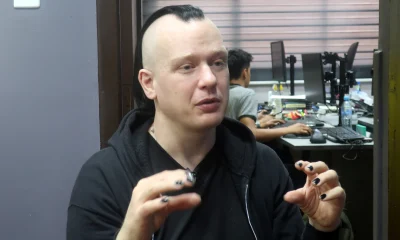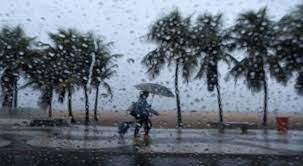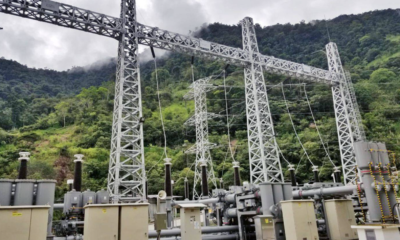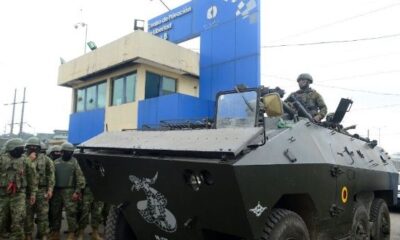International
60% of participation ninety minutes before the closing of the vote in Ecuador
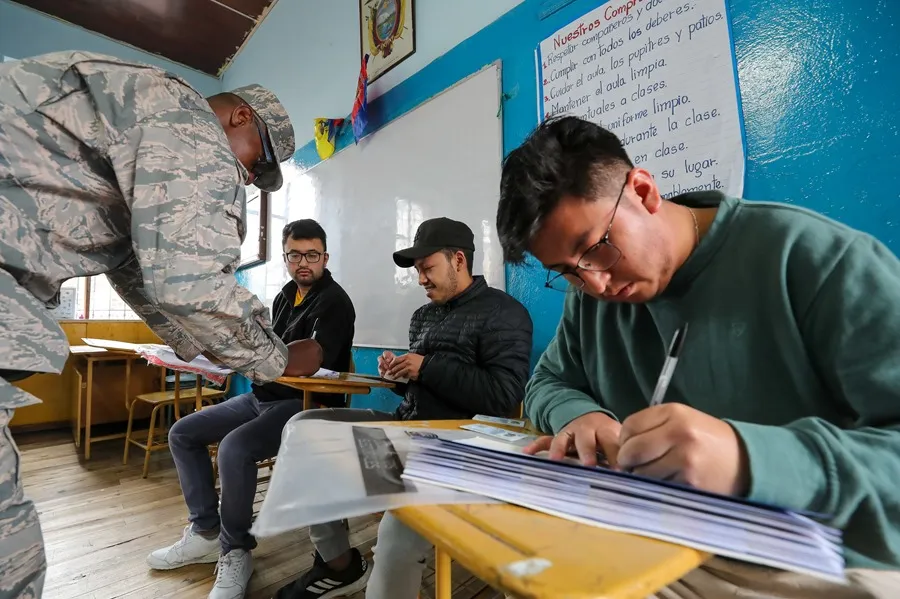
60% participation in the referendum was reported this Sunday by the National Electoral Council (CNE) ninety minutes before the polling stations were closed in Ecuador, where the day took place with “tranquility” until the murder of the director of a prison was recorded.
The percentage was confirmed by the president of the CNE, Diana Atamaint, in the second report on the electoral process to which more than 13.6 million Ecuadorians are summoned to answer eleven questions related to security, justice, investment and employment.
Atamaint publicly invited the population to come to vote because “the country needs them,” he said in a public appearance.
This vote will be a turning point for Noboa, who plays in it the high popularity achieved in the first months of his mandate by having elevated the fight against criminal gangs to the category of “internal armed conflict.”
During the opening ceremony of the day, Noboa remarked that this referendum “will mark the direction of the challenge to face organized crime, the fight against corruption and job creation.”
“Today is our time to make history, to mark a before and after,” said Noboa, for whom “this consultation collects several political flags.”
The referendum is held at one of the most delicate moments for Noboa in the nearly five months he has been in power, with an international diplomatic crisis due to the assault on the Mexican Embassy to arrest former Vice President Jorge Glas and with an internal energy crisis with blackouts of up to eight hours a day this week.
In case of winning the plebiscite, Noboa will be reinforced with a view to the new general elections that will take place in less than ten months and where the president evaluates running for re-election, but if he loses he can be weakened for the remainder of his mandate, until May 2025.
Criminal violence has also rebounded in the week of the referendum with the murder of two mayors in rural towns in whose territories there is the presence of illegal mining, an activity in which organized crime has also incursion, which has drug trafficking as its main business.
Among the eleven questions there are five that imply changes in the 2008 Constitution approved during the presidential term of Rafael Correa (2007-2017), while the remaining six must be processed through the National Assembly (Parliament), in case of receiving the support of the population.
Most propose legal tools to strengthen the fight against organized crime, which is attributed the wave of violence that has led the country to be among the first in Latin America in homicides, with about 45 per 100,000 inhabitants in 2023.
Therefore, he proposes that the Armed Forces support the Police in operations against organized crime on a permanent basis, and that the military be in charge of controlling access to prisons, the epicenter of this crisis having been dominated until a few years ago by criminal gangs, with large arsenals of weapons in their possession.
It also seeks to allow the extraditions of Ecuadorians required by the Justice of other countries and raise the penalties for crimes related to organized crime, as well as eliminate the prison benefits for several of these criminal figures.
To this is added the proposals to create a crime of possession and carrying of weapons for the exclusive use of the Police and the Armed Forces and that the weapons seized from crime immediately move on to equip police and military, in addition to expediting the process of expropriation of illegal property.
Other issues focus on establishing a system of constitutional courts, accepting international arbitrations in any jurisdiction and allowing hourly labor contracts.
In Ecuador, voting is mandatory for people between 18 and 65 years old, while it is optional for adolescents between 16 and 18 years old and also for those over 65 years of age, as well as for police, military and prisoners without a final sentence.
International
U.S. Senate Rejects Budget, Bringing Government Closer to Shutdown Amid DHS Dispute

The U.S. Senate voted on Thursday against a budget proposal in a move aimed at pressuring changes at the Department of Homeland Security (DHS), following the killing of two civilians during a deployment of immigration agents in Minneapolis.
All Senate Democrats and seven Republican lawmakers voted against the bill, which requires 60 votes to advance, pushing the country closer to a partial government shutdown that would cut funding for several agencies, including the Pentagon and the Department of Health.
The rejection came as Senate leaders and the White House continue negotiations on a separate funding package for DHS that would allow reforms to the agency. Proposed measures include banning Immigration and Customs Enforcement (ICE) agents from wearing face coverings and requiring them to use body-worn cameras during operations.
The vote took place just hours after President Donald Trump said he was “close” to reaching an agreement with Democrats and did not believe the federal government would face another shutdown, following last year’s record stoppage.
“I don’t think the Democrats want a shutdown either, so we’ll work in a bipartisan way to avoid it. Hopefully, there will be no government shutdown. We’re working on that right now,” Trump said during a Cabinet meeting at the White House.
International
Trump Says Putin Agreed to One-Week Halt in Attacks on Ukraine Amid Extreme Cold

U.S. President Donald Trump said on Thursday that he secured a commitment from Russian President Vladimir Putinto halt attacks against Ukraine for one week, citing extreme weather conditions affecting the region.
“Because of the extreme cold (…) I personally asked Putin not to attack Kyiv or other cities and towns for a week. And he agreed. He was very pleasant,” Trump said during a Cabinet meeting broadcast by the White House.
Trump acknowledged that several advisers had questioned the decision to make the call.
“A lot of people told me not to waste the call because they wouldn’t agree. And he accepted. And we’re very happy they did, because they don’t need missiles hitting their towns and cities,” the president said.
According to Trump, Ukrainian authorities reacted with surprise to the announcement but welcomed the possibility of a temporary ceasefire.
“It’s extraordinarily cold, record cold (…) They say they’ve never experienced cold like this,” he added.
Ukrainian President Volodymyr Zelensky later commented on the announcement, expressing hope that the agreement would be honored.
International
Storm Kristin Kills Five in Portugal, Leaves Nearly 500,000 Without Power

Storm Kristin, which battered Portugal with heavy rain and strong winds early Wednesday, has left at least five people dead, while nearly half a million residents remained without electricity as of Thursday, according to updated figures from authorities.
The revised death toll was confirmed to AFP by a spokesperson for the National Emergency and Civil Protection Authority (ANPEC). On Wednesday, the agency had reported four fatalities.
Meanwhile, E-Redes, the country’s electricity distribution network operator, said that around 450,000 customers were still without power, particularly in central Portugal.
Emergency services responded to approximately 1,500 incidents between midnight and 8:00 a.m. local time on Wednesday, as the storm caused widespread disruptions.
The Portuguese government described Kristin as an “extreme weather event” that inflicted significant damage across several regions of the country. At the height of the storm, as many as 850,000 households and institutions lost electricity during the early hours of Wednesday.
Several municipalities ordered the closure of schools, many of which remained shut on Thursday due to ongoing adverse conditions.
Ricardo Costa, regional deputy commander of the Leiria Fire Brigade, said residents continue to seek assistance as rainfall persists.
“Even though the rain is not extremely intense, it is causing extensive damage to homes,” he noted.
In Figueira da Foz, a coastal city in central Portugal, strong winds toppled a giant Ferris wheel, underscoring the severity of the storm.
-

 Central America4 days ago
Central America4 days agoGuatemala seizes over a ton of cocaine hidden in flour at Pacific port
-

 International4 days ago
International4 days agoHistoric snowstorm paralyzes Toronto after 60 centimeters of snow
-

 Central America3 days ago
Central America3 days agoGuatemala Police Arrest Prison Guard Caught in the Act of Extortion
-

 Central America3 days ago
Central America3 days agoHonduras swears in conservative president Asfura after disputed election
-

 Central America3 days ago
Central America3 days agoBukele leads public trust rankings as UCA survey highlights gains in security
-

 International4 days ago
International4 days agoSpain’s irregular migrant population rises to 840,000, study finds
-

 International2 days ago
International2 days agoFootball Fan Killed in Clashes After Colombian League Match
-

 International3 days ago
International3 days agoWinter Storm Fern Leaves 30 Dead and Over One Million Without Power Across the U.S.
-

 Central America2 days ago
Central America2 days agoGuatemala President Says Starlink Terminal Found Inside Prison
-

 Sin categoría3 days ago
Sin categoría3 days agoEight Killed in Series of Armed Attacks in Ecuador’s Manabí Province
-

 International3 days ago
International3 days agoDoomsday clock moves to 85 seconds before midnight amid rising global risks
-

 International4 days ago
International4 days agoRights group says nearly 6,000 killed in Iran protest crackdown
-

 International3 days ago
International3 days agoSpain approves plan to regularize up to 500,000 migrants in Historic Shift
-

 Sin categoría3 days ago
Sin categoría3 days agoEl Salvador Launches Fourth Year of Ocean Mission to Protect Marine Ecosystems
-

 International2 days ago
International2 days agoRubio Says U.S. Could Participate in Follow-Up Russia-Ukraine Talks
-

 International2 days ago
International2 days agoMissing Spanish Sailor Rescued After 11 Days Adrift in Mediterranean
-

 International4 days ago
International4 days agoVenezuela frees at least 80 political prisoners, NGO says
-

 International4 days ago
International4 days agoEU launches new probe into X over AI-generated fake nude images
-

 International18 hours ago
International18 hours agoU.S. Senate Rejects Budget, Bringing Government Closer to Shutdown Amid DHS Dispute
-

 International4 days ago
International4 days agoSevere winter storm grips U.S., leaves multiple dead as extreme cold persists
-

 International4 days ago
International4 days agoFrance debates ban on social media for children under 15
-

 International18 hours ago
International18 hours agoStorm Kristin Kills Five in Portugal, Leaves Nearly 500,000 Without Power
-

 International18 hours ago
International18 hours agoMan Arrested After Vehicle Crashes Into Jewish Institution in Brooklyn
-

 International18 hours ago
International18 hours agoTrump Says Putin Agreed to One-Week Halt in Attacks on Ukraine Amid Extreme Cold

























